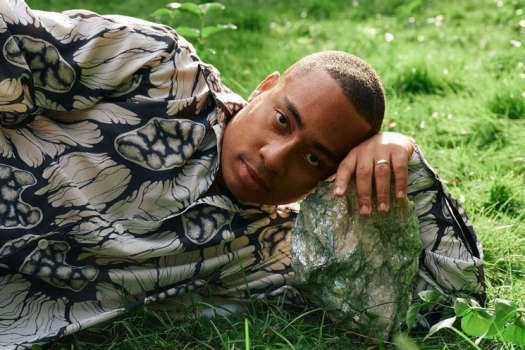Anyone who appreciates the unique spirit of Robin Hardys 1973 The Wicker Man and would fail to see how a little bit of satire could spruce up the story should best steer clear of this updating. Some things should remain sacred and you get the sense that Neil LaBute (In the Company of Men, The Shape of Things) realised this when he began to adapt Anthony Shaffers original screenplay but despite its obvious differences, what he has given us is nothing short of perplexing. Like most remakes, theres little need for it but LaBute has made some interesting decisions that are at the very least, quite entertaining.
Nicolas Cage plays Edward Malus, a cop who takes a leave of absence when he fails to save a mother and her young daughter in a car accident. One day he receives a note from ex-love Willow (Kate Beahan), claiming her daughter Rowan has gone missing on Summersisle Island. Hesitant, Edward decides to investigate and quickly finds himself in the strangest of places and unwelcome by everyone except Willow. A feminine utopia of sorts (the woman are dominant, the men submissive), Summersisle is clouded in mystery and unorthodox rituals. Edwards investigation soon turns to obsession and before long he finds himself face to face with a truth far from what he expected.
The Wicker Man is also hardly what many will be expecting: on some levels it feels like a B-movie and, at times, a complete parody of Hardys film. Cage is completely histrionic, as his character goes from pathetic cynic to full-blown ruffian in 90 minutes (including an hilarious moment where he chases after the "missing" girl in full grizzly bear suit), which would have added a marvellous twist to the story if he had kept the buffoonery consistent. In contrast to Edward Woodwards Sergeant Howie, hes a little more entertaining, with a sardonic edge that sets him apart from Howies overtly devout Christian. However, his dialogue becomes too outlandish by the end of the film, seeping into comedic overdrive as he yells: "You bitches! Killing me wont bring back your goddamn honey! Christopher Lees powerful Lord Summerisle has been desexualised and is now Ellen Burstyn as Sister Summersisle (notice the different island name, as well). This too is another fascinating shift, giving all of the power on the island to women, but Burstyn is nowhere near as spooky as Lee when it comes to the jaw-dropping conclusion.
LaButes script is actually better than I'd expected, but the reliance on flashbacks, high-octane dream sequences, clichéd cheap thrills and (sigh) the "six months later cliff-hanger make the film far too pedestrian and typical of this breed. Part of me wanted some of that eerie innocence the original reeked of to creep in, like the nude frolicking or the random folk song and dance (where was Leelee Sobieski doing the nude seductress dance?!?), but the undeniably campy nature LaBute stirs up is laugh-out-loud hilarious. Whether it was intentional or not, who even cares?
In the end, LaButes version is a complete mess but is so far from the original that it nearly works as an absurd piece of appetising cinema. Not trash but potentially a guilty pleasure. (Warner)
Nicolas Cage plays Edward Malus, a cop who takes a leave of absence when he fails to save a mother and her young daughter in a car accident. One day he receives a note from ex-love Willow (Kate Beahan), claiming her daughter Rowan has gone missing on Summersisle Island. Hesitant, Edward decides to investigate and quickly finds himself in the strangest of places and unwelcome by everyone except Willow. A feminine utopia of sorts (the woman are dominant, the men submissive), Summersisle is clouded in mystery and unorthodox rituals. Edwards investigation soon turns to obsession and before long he finds himself face to face with a truth far from what he expected.
The Wicker Man is also hardly what many will be expecting: on some levels it feels like a B-movie and, at times, a complete parody of Hardys film. Cage is completely histrionic, as his character goes from pathetic cynic to full-blown ruffian in 90 minutes (including an hilarious moment where he chases after the "missing" girl in full grizzly bear suit), which would have added a marvellous twist to the story if he had kept the buffoonery consistent. In contrast to Edward Woodwards Sergeant Howie, hes a little more entertaining, with a sardonic edge that sets him apart from Howies overtly devout Christian. However, his dialogue becomes too outlandish by the end of the film, seeping into comedic overdrive as he yells: "You bitches! Killing me wont bring back your goddamn honey! Christopher Lees powerful Lord Summerisle has been desexualised and is now Ellen Burstyn as Sister Summersisle (notice the different island name, as well). This too is another fascinating shift, giving all of the power on the island to women, but Burstyn is nowhere near as spooky as Lee when it comes to the jaw-dropping conclusion.
LaButes script is actually better than I'd expected, but the reliance on flashbacks, high-octane dream sequences, clichéd cheap thrills and (sigh) the "six months later cliff-hanger make the film far too pedestrian and typical of this breed. Part of me wanted some of that eerie innocence the original reeked of to creep in, like the nude frolicking or the random folk song and dance (where was Leelee Sobieski doing the nude seductress dance?!?), but the undeniably campy nature LaBute stirs up is laugh-out-loud hilarious. Whether it was intentional or not, who even cares?
In the end, LaButes version is a complete mess but is so far from the original that it nearly works as an absurd piece of appetising cinema. Not trash but potentially a guilty pleasure. (Warner)




